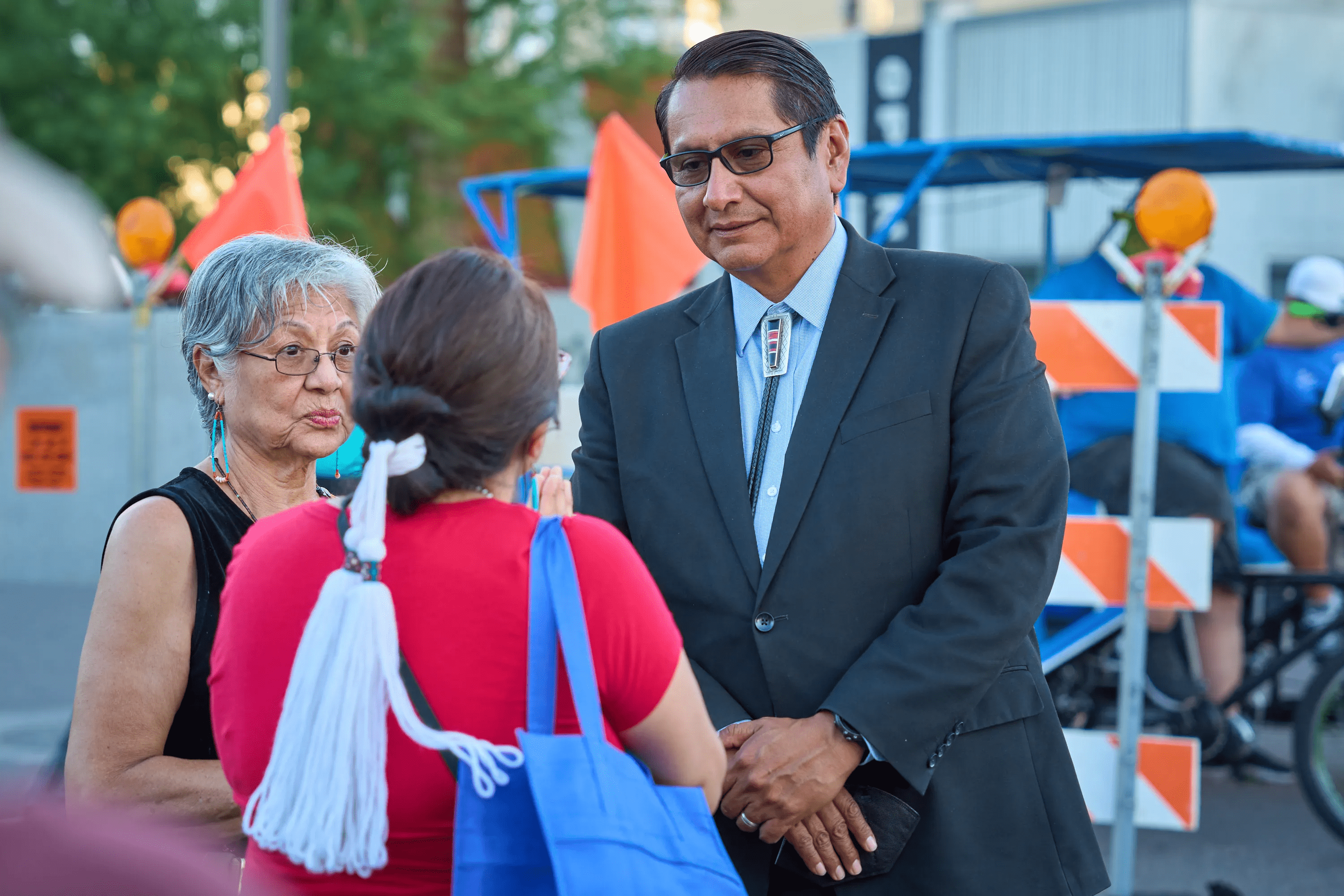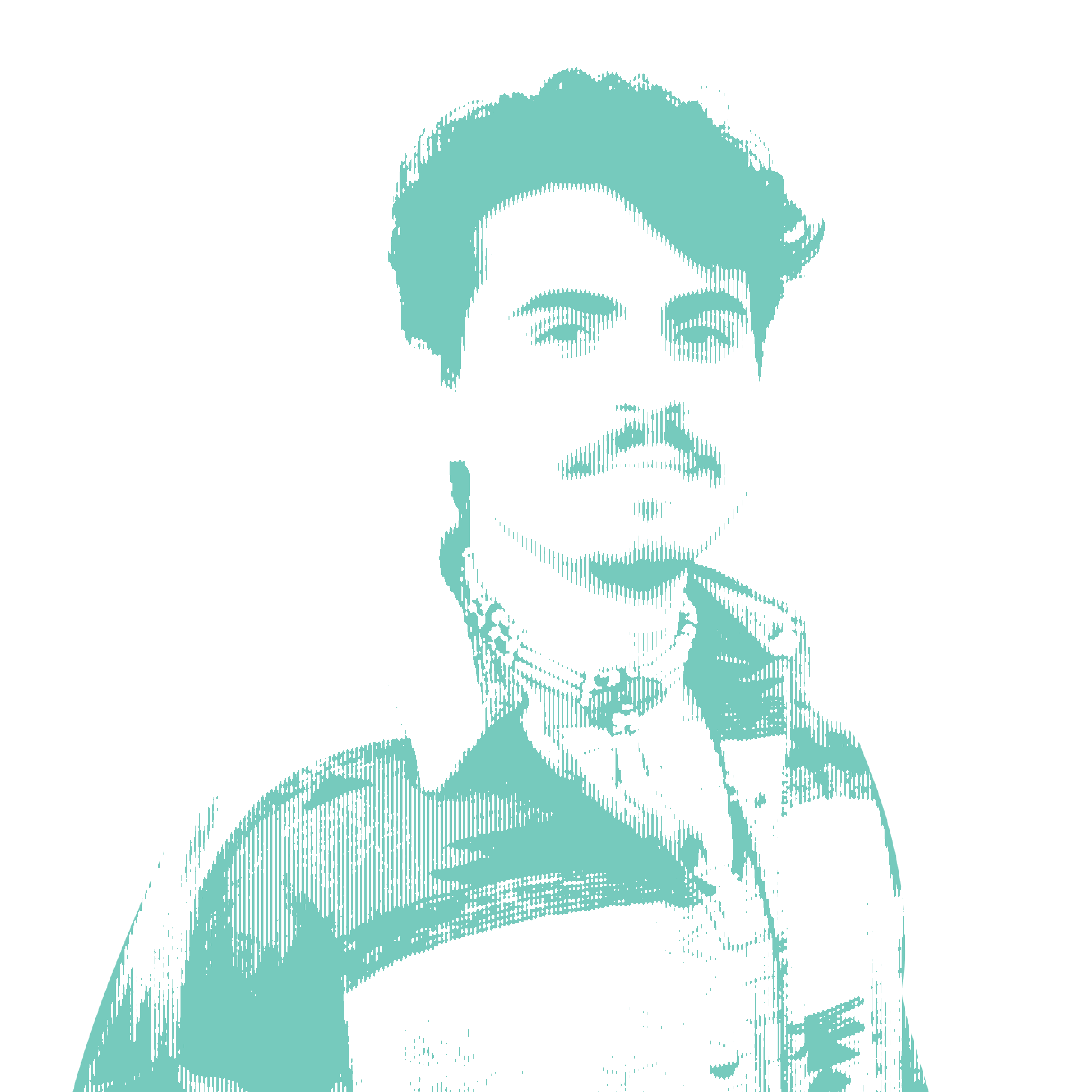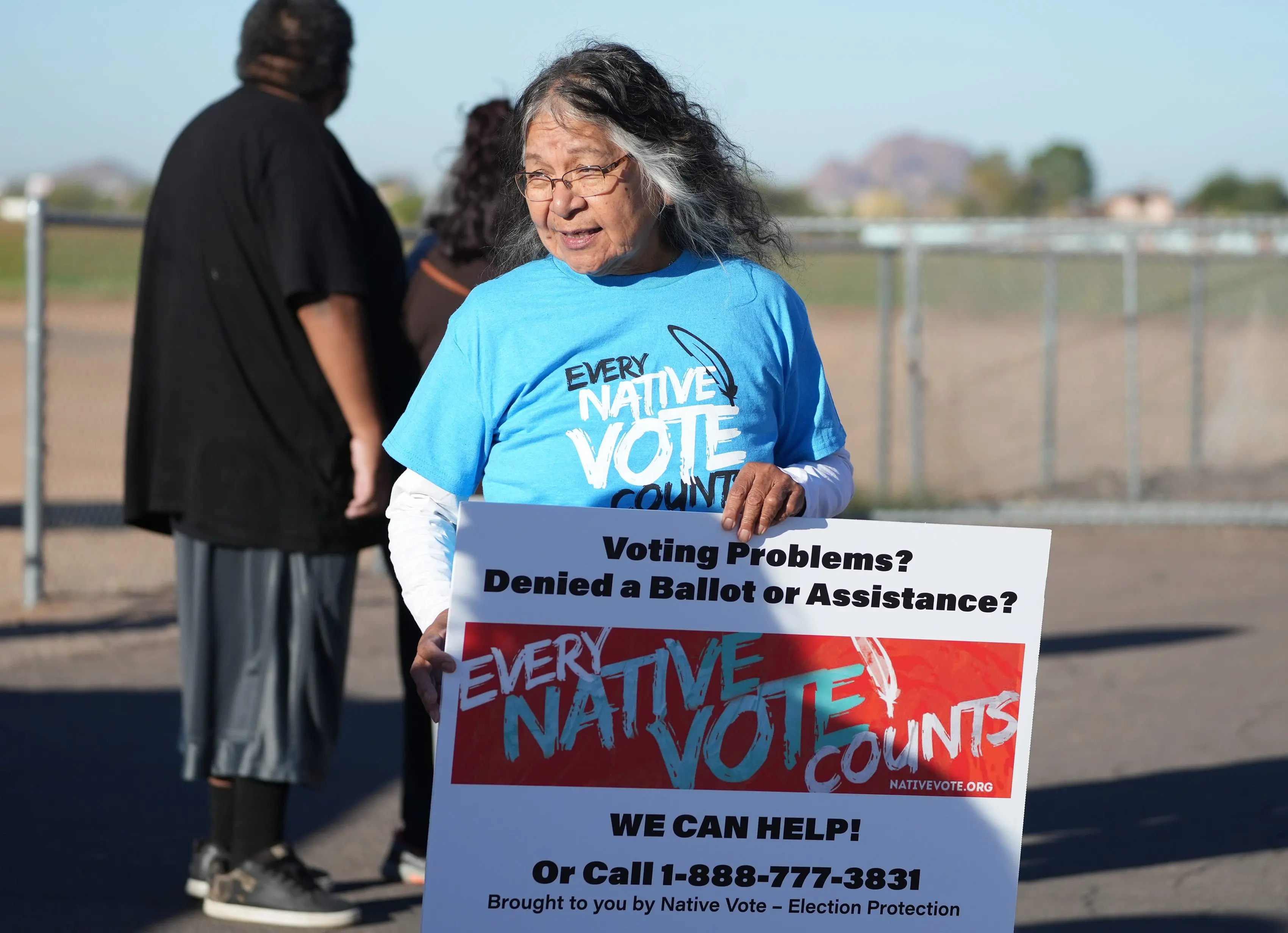
A steady stream of voters showed up at Salt River Pima-Maricopa Indian Community's polling place at the tribe's recreation center Tuesday to vote, drop off early ballots or just visit and pick up swag like T-shirts, mouse pads and mugs.
A large tent sheltered tribal and voter protection staff from the sun on a bright fall day in the community whose land lies just east of Scottsdale.

As a nonprofit journalism organization, we depend on your support to fund more than 170 reporting projects every year on critical global and local issues. Donate any amount today to become a Pulitzer Center Champion and receive exclusive benefits!
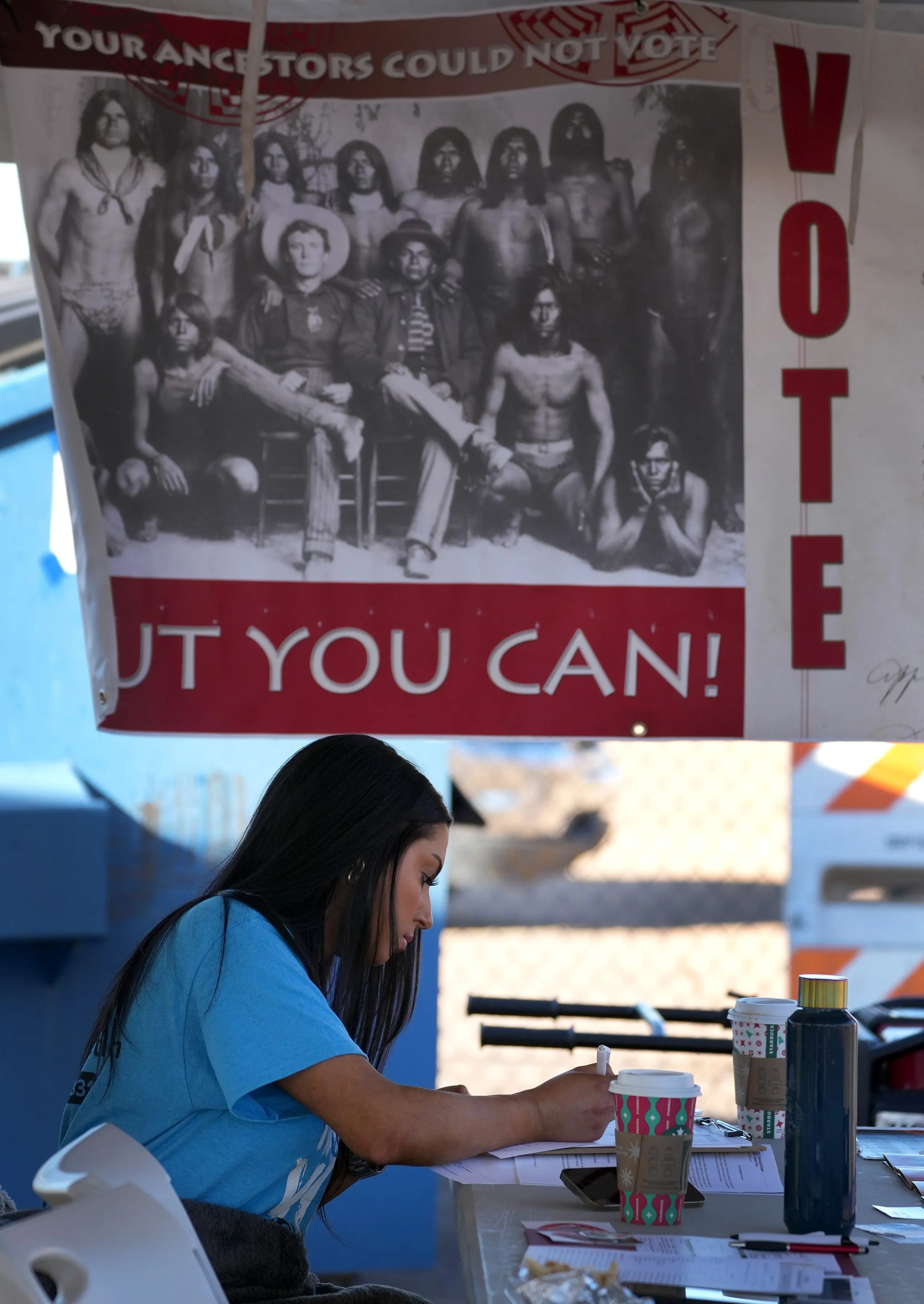
But not all was as pleasant inside the building, where poll workers contended with at least one tabulation machine malfunctioning. Vote observers told The Arizona Republic that they had seen one voter forced to try three times before their ballot was accepted into the machine.
Salt River Councilwoman Diane Enos, an attorney who volunteers frequently with Arizona Native Vote Election Protection Project, said the group had received calls about problems with the tabulation machine programs from across the Phoenix metro area.
In some cases. she said voters' ballots were "spoiled," a process where poll workers mark a ballot invalid if it is damaged or otherwise unusable. The voter is given another fresh ballot to mark again.
"I saw one person vote but who couldn't get it into the machine," she said.
Enos advised voters dropping off early ballots to sign and date the envelope so poll workers would know the ballot was received on Election Day.
ASU legal clinic helps solve issues

Arizona State University's Indian Legal Clinic served as the command center for the Native Vote Election Protect Project, a non-partisan initiative of the National Congress of American Indians that supports voter registration and election protection, as well as voter education on candidates and issues.
The clinic's director and Native Vote coordinator, ASU law professor Patty Ferguson-Bohnee, said the project placed students and attorneys at polling places on reservations and in communities where large numbers of Indigenous people vote throughout the state.
The phones rang steadily with questions ranging from where to vote in some rural counties to reports of problems with language interpretation technology or the lack of human interpreters.
"We get a lot of calls from Navajo," said Ferguson-Bohnee, a member of the Pointe-au-Chien Indian Tribe.
Workers learned of Maricopa County's tabulation machine issues, as well as polling places opening up to two hours late in Many Farms, a community in the Navajo Nation.

Native Vote worked with the American Civil Liberties Union and the Navajo Nation to draft a request to a court in Apache County to keep Many Farms open until 9 p.m. Ferguson-Bohnee said ACLU and the Navajo Nation filed the suit and the location remained open the two extra hours.
Other Native Vote workers reported other issues throughout the day. "New Pascua is open but the machines aren't working," she said of a polling place in Pima County that's in one of the Yaqui communities.
Native Vote workers also fielded calls about overzealous campaign workers intimidating voters or moving inside the mandated 75-foot zone surrounding the entrance to polling places.
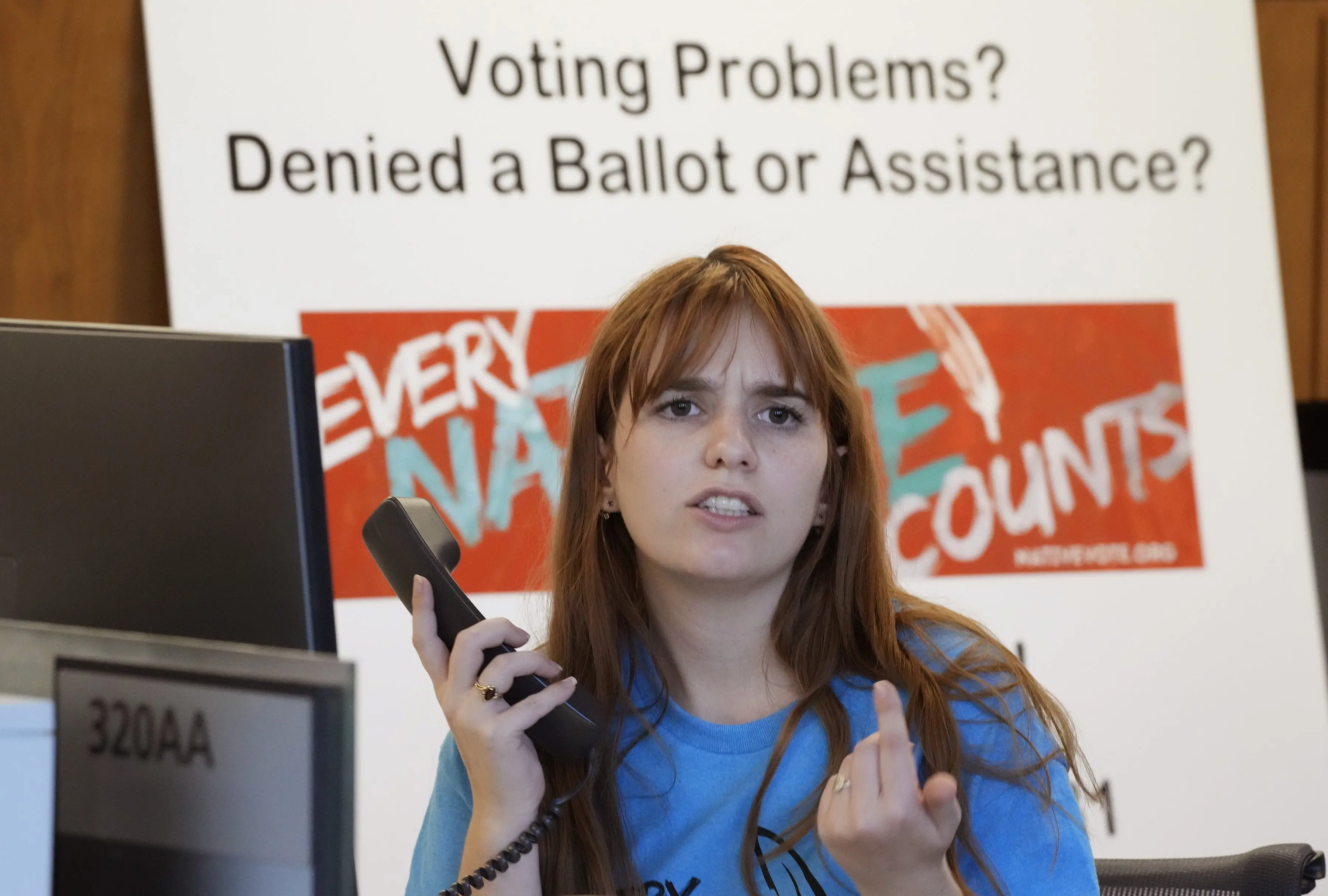
In one case, "a lady was taking photos of voters in Guadalupe," Ferguson-Bohnee said. Election protection workers were called in to stop the practice and educate campaign volunteers about how to campaign for their candidates without intimidation.
In another case, she said, a poll worker tried to keep an election protector out of the facility.
A firearm near a polling place
One particular call set off alarms at the Native Vote center: a report of a man with a gun at a tribal polling place.
That was Jeff Zink, who was running for a congressional seat against Democratic incumbent Rep. Ruben Gallego. Zink told The Arizona Republic he was setting up his campaign booth with water, snacks and coffee at a polling place at a tribal community center on the Gila River Indian Community when a poll worker confronted him. The poll workers told him he needed a permit to set up candidate signs.
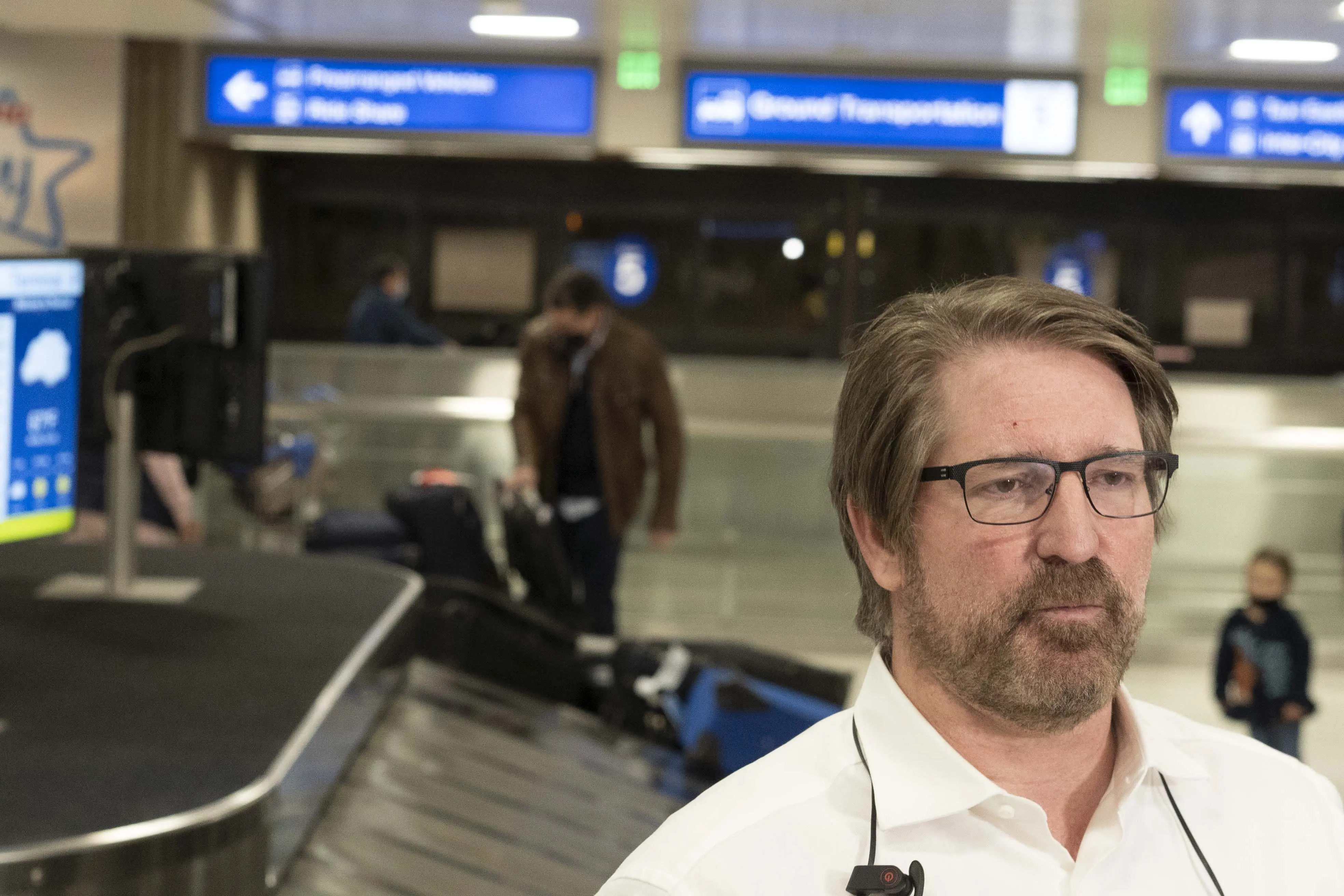
"We're trying to do a fair election, it's just the two people who came out who didn't like us being there," he said.
Zink told The Republic he was unaware that it was against tribal law for him to have a weapon and that he never entered the tribal government building.
"The tribal police came out and talked to me and there were no issues," he said.
The Native Vote staff said Zink locked his gun in his vehicle when police approached. A picture taken by a Native Vote worker showed that Zink's gun had been holstered.
Native Vote workers also had an issue with the same overzealous poll workers, even though like Zink, the voter protection workers set up their operation outside the 75-foot zone mandated by election law.
Finally, Zink said, the supervisor for the polling place came out and said everybody could stay.
"We got the booth back up and then I left and went to other locations," he said.
Navajo Nation comes out to vote
Roselle Sandoval was wearing a 'VOTE' necklace she had specially made and on Election Day, she and others stood outside the Fort Defiance Chapter House on the Navajo Nation and talked to voters about the state and federal elections.
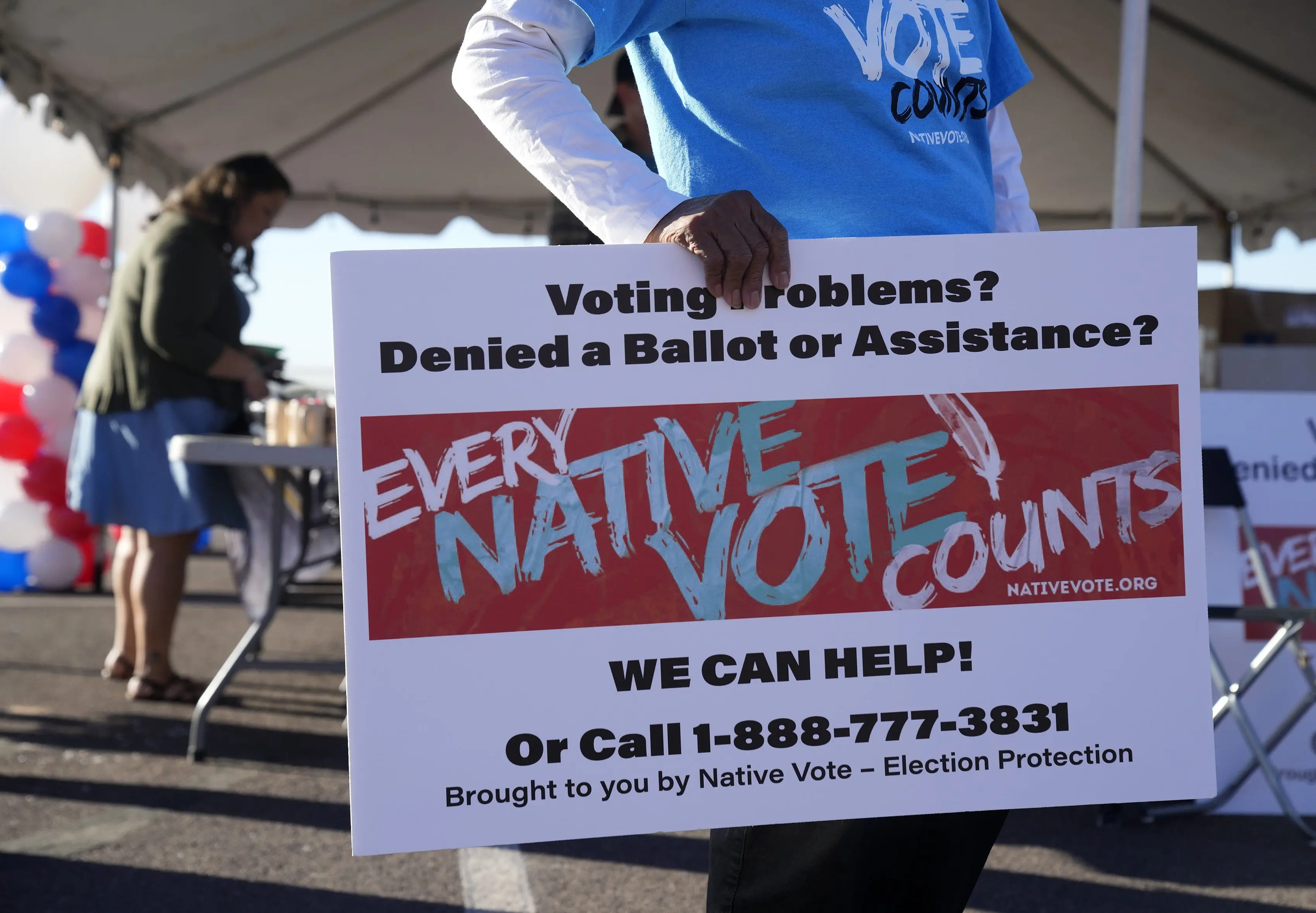
Working with Mission for Arizona, they had been campaigning for Sen. Mark Kelly and gubernatorial candidate Katie Hobbs. Sandoval said they handed out information sheets to voters to read to help them understand the candidates and propositions.
"We have our sheet with the propositions in the back because a lot of them don't know, a lot of our elders don't know," Sandoval said. "That's good information for them. We are hoping the Navajo Nation will push our candidates ahead. Our goal is to keep Arizona blue and keep it Democrat."
Andy Nez was running to be the council delegate for Fort Defiance, Sawmill, Red Lake and Crystal communities. While other voters in Arizona were choosing state and federal elections, on the Navajo Nation, council and presidential elections had been in full swing.
At the Fort Defiance Chapter Tuesday, Nez discussed his campaign with voters. As a delegate, he would be representing constituents from both Arizona and New Mexico because his communities are located in both states.
"As a researcher and a statistician, and a person who has been in education all my career, that's the value of my career, that you have to see results," Nez said. "When I completed my doctorate, it was about that."
He said he had been sharing that knowledge with families and communities.
"We have to understand that anything we do has to have evidence, has to have smart planning," he said, "not just now or five years but for 20 years."
Salt River voters weigh in
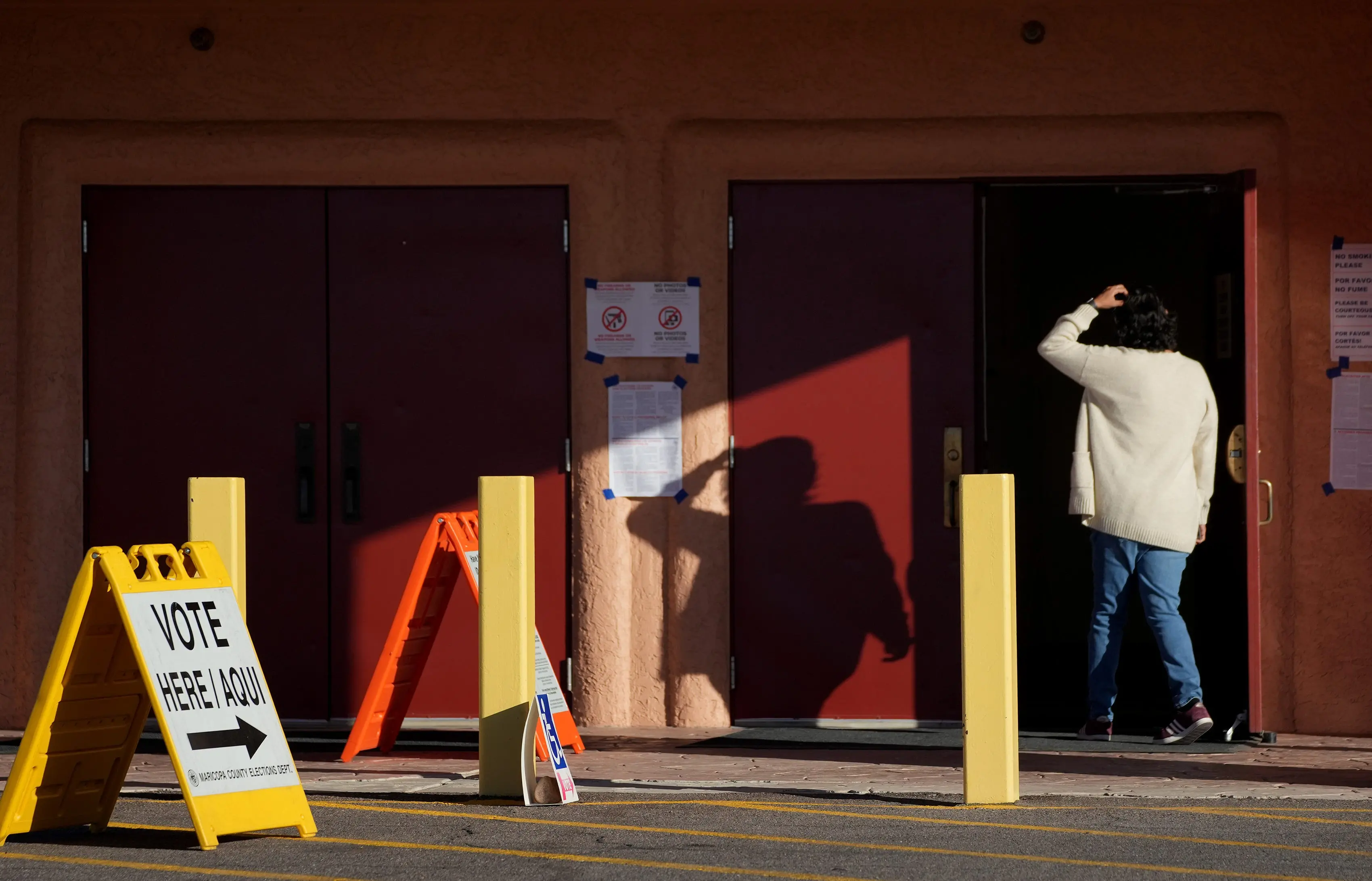
Die’dre Goodluck, a Navajo Nation member who has family in the Salt River community and who lives close to the reservation, said Salt River was her polling place and had been for years.
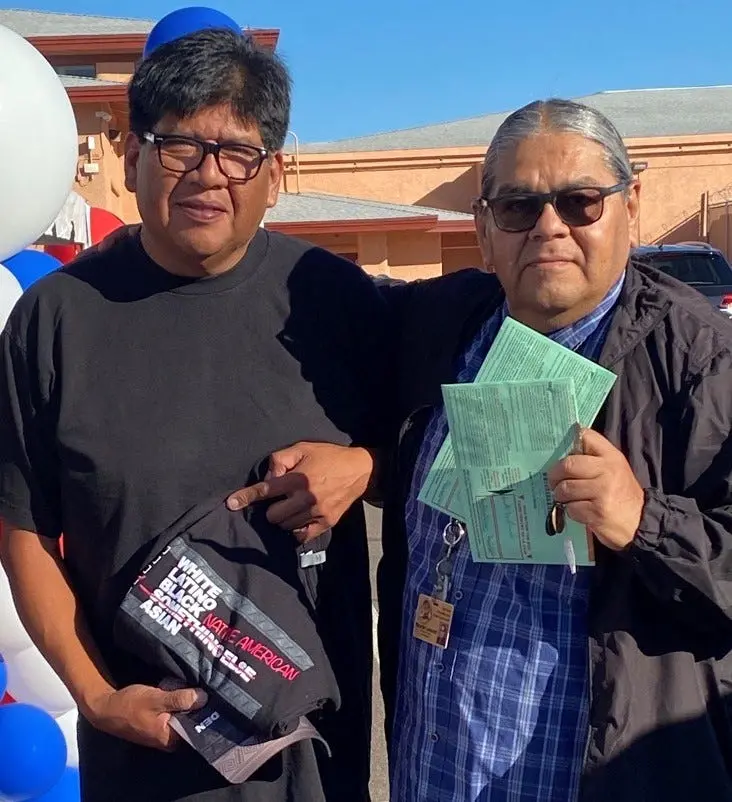
“I’m always here to make sure we have representation,” she said. “It’s important for us to do our civic duty because our grandparents weren’t able to.”
Goodluck said she voted a straight Democratic ticket.
"It's important to make sure we have judicial and representatives who have the best interests of tribes in mind," she said.
Salt River Vice President Ricardo Leonard arrived to drop off his early ballot with a tribal member friend. Leonard said the current political climate could be attributed to giving groups like white supremacists a break.
"When you have politicians who support these groups, you're opening the door," he said. The current Republican Party isn't the same as it was when it concentrated on fiscal responsibility and other such issues, he said.
"But when you have a great number of people who say the election was rigged, it's hard to get past that," Leonard said. "It's a scary thing especially for Natives."


